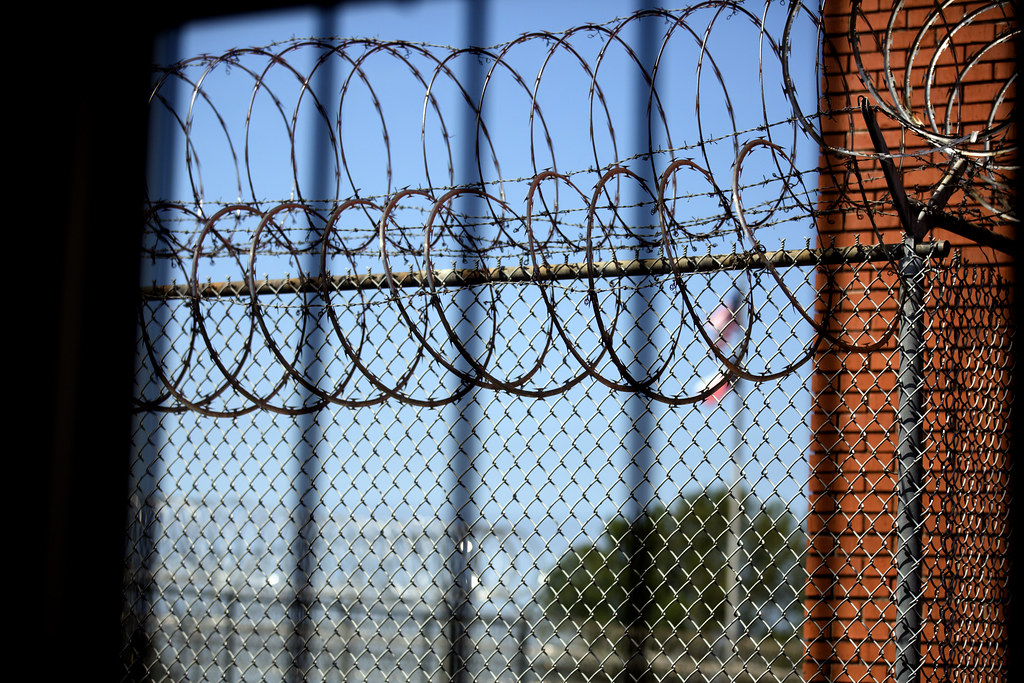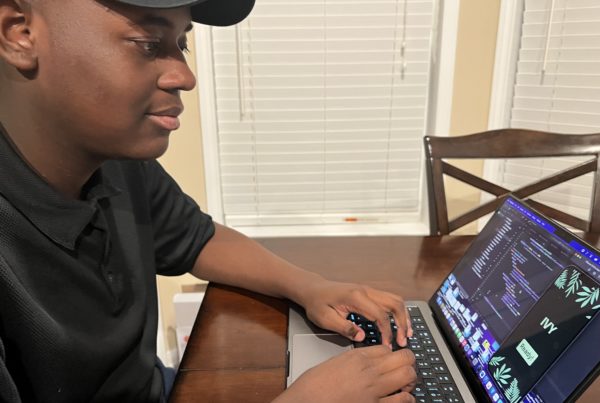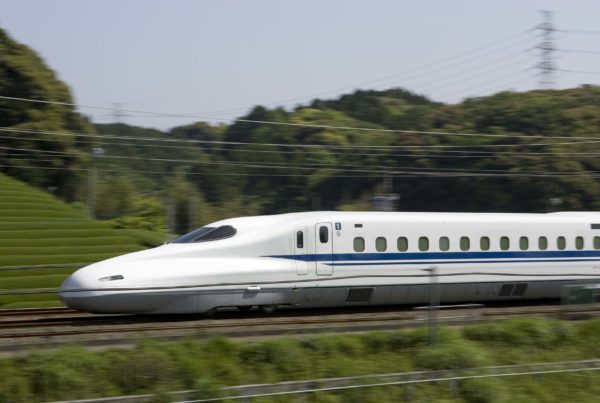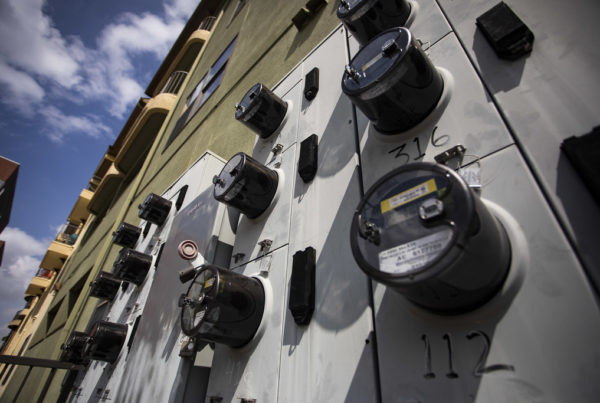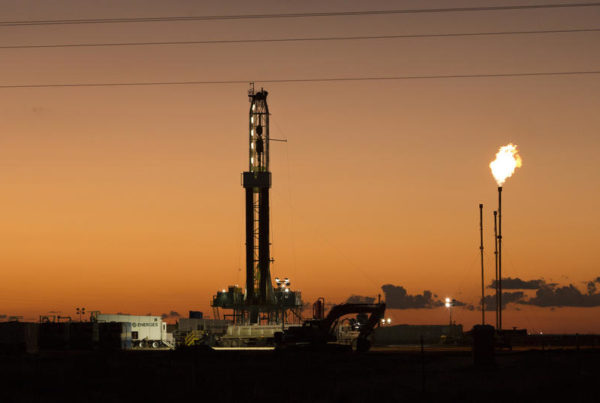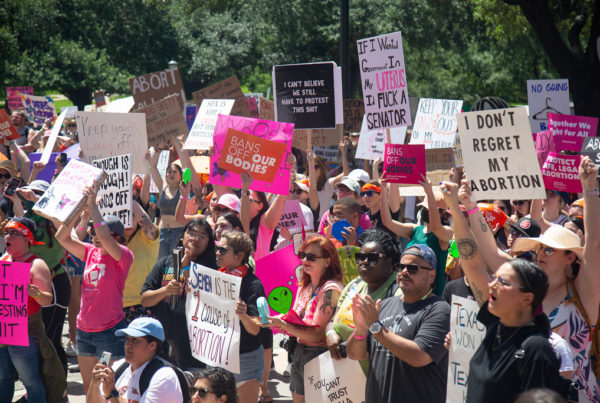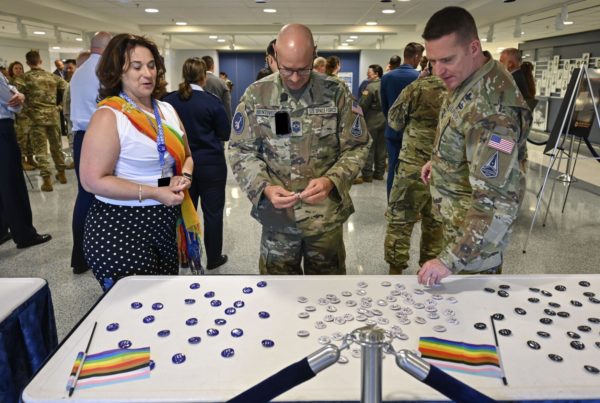Texas is one of seven states, all in the South, that does not pay people in prison for their work. A new report by the Global Human Rights Clinic at the University of Chicago Law School and the American Civil Liberties Union estimates about 800,000 people in prison perform labor, many under dangerous conditions.
Michael Barajas, managing editor at Bolts — a digital magazine covering criminal justice and voting rights — reports on how Texas agencies profit from goods and services produced by people in prison. David Johnson, an activist and formerly incarcerated worker, is part of a growing movement to stop forced labor in prison. They joined Texas Standard to talk about the report’s findings and what activists are trying to accomplish in the state.
This transcript has been edited lightly for clarity:
Texas Standard: Michael, what’s been learned from the report by the Global Rights Clinic at the University of Chicago Law School and ACLU? What did it find out about prison labor in Texas?
Michael Barajas: This report was really sort of a deep dive into the available data, but also some surveys with incarcerated workers themselves. The dynamics are different in varying states, but the central theme is that this is a system largely of forced and unpaid or radically underpaid labor that largely benefits the state prison systems themselves — sort of maintenance-related jobs or kitchen work or janitorial work or repair work, any sort of those things.
But also, as the report details the dynamics here in Texas, there are individual, state and local government agencies that also rake in savings by using cheap or very low-cost contracts through the state prison system for labor or goods. And that has changed over the course of history, who you’re exactly allowed to sell those goods and services to. But right now, it’s primarily local government agencies, so cities, school boards, things of that nature.
David, while you were incarcerated, you worked on what was described as a “prison farm.” Where was that, and what was your experience like?
David Johnson: That experience occurred in Midway, Texas, at the Ferguson Unit, aptly named after a discredited and impeached governor. But to describe it: It was torturous. It occurred in all types of weather, especially the beating heat. There is an expectation to perform with minimal water. And truly, it was evocative of the slavery that it’s meant to actually duplicate — recognizing that the only reason that forced labor is still allowed within the carceral system is as a result of the well-known loophole that’s left in the 13th Amendment to allow it.
David, what specifically were you doing? Is a “prison farm” a literal farm, growing plants?
Absolutely. My specific experience – the imagery that you’ve seen in many movies of the chain gang – my experience was being in a line of men dressed in white, two-piece jumpsuits, holding what they call aggies, but are garden hoes, wearing work boots, standing in fields, counting out slave counts. “One, two, three.” And we’re rocking on it while we’re chopping grass that isn’t even there, just to make us work, while individuals armed and in uniform sit on horses overlooking us, making sure we know that if we err in any way, we’re at their mercy.
If that doesn’t evoke the call of slavery, I don’t know what does. A lot of people believe, because of the programing of our culture, that this is deserved and that this is what people should be doing if they’re in jail. The Baretta’s Theme, “don’t do the crime, if you can’t do the time,” when in fact, it’s an exhaustion of our humanity.
Michael, David mentioned the 13th Amendment. Could you say more about how officials try to justify not paying prison workers for their labor?
Prison agencies will generally justify their reliance on force and unpaid or radically underpaid labor by claiming they’re providing benefits that go beyond money. They will talk about teaching job skills and helping people succeed after their release. I got a statement similar to that from the Texas prison system lately when I was writing the story. It’s just the fact that most incarcerated people, a lot of their families, a lot of their advocates on the outside will just vehemently dispute those claims.
The majority of people who are in prison are going to return to their communities. And we have research showing that recidivism is reduced when returning citizens have savings and stable employment, and the dynamics of prison labor right now, as David just described them, just do not set people up for that success.
In Texas, based on the data, nearly $77 million worth of prisoner-made goods and services were sold in 2019. And yet I hear what David is describing and it sounds like a kind of intimidation. Michael, how much of this is about making money? Where does that money go?
The agricultural industries in Texas prisons sometimes even lose money. I think sometimes the cruelty or the labor is the point. But the prison industry is writ large in who they’re selling goods and services to at radically reduced or low cost. That’s to your local school districts. I point out in the story how the City of Houston a couple of years ago got rid of a tire retreading contract because somebody in a City Council member’s office realized that it was these dynamics of labor – what David and many others refer to as “modern day slave labor” – that was undergirding that low, low bid. And so, they didn’t move forward with it.
David, what are you working toward in Texas? You’re part of a growing movement to stop forced labor in prison. How much support are you seeing, and where do you want it to go?
With regard to my work in the Coalition to Abolish Slavery Texas, or CAST, Savannah Eldrige and I are working to develop a strong and vibrant coalition of different organizations focused on simply abolishing slavery in its entirety through state constitutional amendment or as part of a contributing campaign to the national movement to end the exception through the Abolish Slavery National Network.
And we’ve received a great response. While the recently approved Texas Republican Party platform names a number of things that come directly at what we are pursuing, I’m actually thankful that things have happened the way they have to draw a spotlight upon the powers that be, so that perhaps the people who truly need to get out and force decision makers to move differently will be unable to ignore the truth that sits before them and always has.
Michael, do you see any momentum or any desire or interest in change when it comes to forced labor in Texas prisons?
Well, I think there’s definitely momentum because of organizers in Texas like David and Savannah. There was a bill last session that was filed to start this state constitutional amendment process that David was just referencing that didn’t get a hearing despite a lot of, I think, increasing pressure on the issue. So I guess we’ll see in the future. I think there’s potential for movement on all of those fronts, in part because of the awareness and the advocacy that people like David keep doing.


